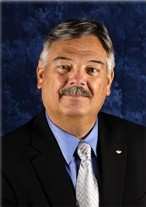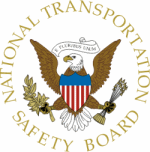Single Probable Cause Fails To Acknowledge A Need To Enhance
Pilot Screening, Training, and Mentoring
 Discussion during Tuesday's NTSB Sunshine Meeting on the
Colgan Air Flight 3407 accident highlighted many long-standing
aviation safety priorities of the Air Line Pilots Association,
Int’l (ALPA), the organization said in a news release
following the meeting. Those including identifying a clear
need to improve pilot screening, training, and mentoring, and
modernize flight-time/duty-time regulations for airline pilots.
However, the Board ignored the bulk of these factors in its
statement of probable cause.
Discussion during Tuesday's NTSB Sunshine Meeting on the
Colgan Air Flight 3407 accident highlighted many long-standing
aviation safety priorities of the Air Line Pilots Association,
Int’l (ALPA), the organization said in a news release
following the meeting. Those including identifying a clear
need to improve pilot screening, training, and mentoring, and
modernize flight-time/duty-time regulations for airline pilots.
However, the Board ignored the bulk of these factors in its
statement of probable cause.
“We are deeply disappointed that the NTSB’s probable
cause statement abandoned the systems approach to accident
investigation that the International Civil Aviation Organization
and other agencies around the world are adopting,” said Capt.
John Prater, ALPA’s president (below,right). “During
its discussions, the Board identified the need to improve training,
develop experience, improve cockpit displays, enhance oversight,
and provide better weather information to crews. However, the
statement of probable cause failed to fully and directly
acknowledge the many factors that contributed to this accident.
Creating a safer industry means looking at all the reasons why this
tragedy occurred and taking aggressive action to ensure nothing
similar happens again.”
“With today’s report, the Board has missed a
valuable opportunity to highlight the many factors that combined to
cause this tragedy,” said Prater. “The conclusion of
simple pilot error ignores the multitude of contributing factors in
every accident. The single, narrow focus of the probable cause
statement issued today is an unfortunate move backward away from
that goal.”
 Alpa says that it has for decades advocated for improved pilot
training that reflects all aspects of being a professional airline
pilot. Adequate training is particularly important for unexpected,
abnormal, and potentially hazardous situations. Crew Resource
Management and command training are also essential, so that pilots
learn the judgment and leadership skills that they need to manage
their work in the cockpit.
Alpa says that it has for decades advocated for improved pilot
training that reflects all aspects of being a professional airline
pilot. Adequate training is particularly important for unexpected,
abnormal, and potentially hazardous situations. Crew Resource
Management and command training are also essential, so that pilots
learn the judgment and leadership skills that they need to manage
their work in the cockpit.
“Training is an investment in safety, but it is expensive
and the current structure of our industry economically penalizes
those airline managements that seek to do more than the minimum
training required,” said Capt. Paul Rice, ALPA’s first
vice-president. “While we’ve seen encouraging progress
in improving pilot training and developing tailored programs that
reflect pilots’ skills and experience, our industry must do
much more to achieve the highest training standards
possible.”
In addition, ALPA says it has long urged the FAA to create new
flight-time and duty-time and minimum rest requirements for all
types of flying, from long-haul international to multi-leg
domestic. While the Association has worked for decades to address
pilot fatigue, ALPA pilots have most recently participated in the
FAA’s Aviation Rulemaking Committee, which was charged with
making recommendations for updating the rules.
“The FAA’s timeline for modernizing airline
pilots’ flight-time and duty-time has slipped from the
original target,” continued Prater. “For years, ALPA
has been calling for science-based rules that apply equally to all
operations, including domestic, international, and supplemental
flying. Our passengers and crews deserve to have a final rule in
place before the end of 2010.”
 ALPA also emphasized airline management’s role and
responsibility in developing a corporate culture centered on safety
and that is designed to detect trends and implement solutions to
enhance safety. “Airline management plays a pivotal role in
setting the tone for safety and professionalism at an individual
airline,” said Capt. Rory Kay, ALPA’s Executive Air
Safety Chairman. “Pilots, and all employees, must feel
confident that they can report issues through non-punitive safety
reporting programs without fear of retribution, as part of a
corporate culture that is firmly focused on creating the safest
possible flight operations.”
ALPA also emphasized airline management’s role and
responsibility in developing a corporate culture centered on safety
and that is designed to detect trends and implement solutions to
enhance safety. “Airline management plays a pivotal role in
setting the tone for safety and professionalism at an individual
airline,” said Capt. Rory Kay, ALPA’s Executive Air
Safety Chairman. “Pilots, and all employees, must feel
confident that they can report issues through non-punitive safety
reporting programs without fear of retribution, as part of a
corporate culture that is firmly focused on creating the safest
possible flight operations.”
ALPA adopted a Code of Ethics in 1956. Since then, the
Association says it has taken many actions to promote the highest
possible standards of conduct for airline pilots. Nearly all
ALPA-represented pilot groups have Professional Standards
Committees charged with maintaining the highest degree of
professional conduct. In September 2009, ALPA released a white
paper titled “Producing a Professional Airline Pilot”
that frames the Association’s recommendations for candidate
screening, hiring, training, and mentoring.
“When management supports professional standards
committees, these groups can make a significant contribution to
advancing safety at the airline and even establish best practices
for the industry,” said Rice. “It is unfortunate that
many airline managements still fail to seize the opportunity to
work with ALPA on professional standards and other safety
initiatives, but we’ve seen some positive developments in the
past year.”
“Recently, Colgan Air has worked together with its pilots
to address safety issues and capitalize on safety reporting
programs as a way to identify and solve issues before accidents or
incidents occur,” said Capt. Mark Segaloff, chairman of the
Colgan pilots’ chapter of ALPA. “We are seeing signs of
progress and look forward to future collaborative efforts at Colgan
Air.”
 ANN's Daily Aero-Linx (04.16.24)
ANN's Daily Aero-Linx (04.16.24) Aero-News: Quote of the Day (04.16.24)
Aero-News: Quote of the Day (04.16.24) Airborne 04.10.24: SnF24!, A50 Heritage Reveal, HeliCycle!, Montaer MC-01
Airborne 04.10.24: SnF24!, A50 Heritage Reveal, HeliCycle!, Montaer MC-01 Airborne 04.12.24: SnF24!, G100UL Is Here, Holy Micro, Plane Tags
Airborne 04.12.24: SnF24!, G100UL Is Here, Holy Micro, Plane Tags Airborne-Flight Training 04.17.24: Feds Need Controllers, Spirit Delay, Redbird
Airborne-Flight Training 04.17.24: Feds Need Controllers, Spirit Delay, Redbird





